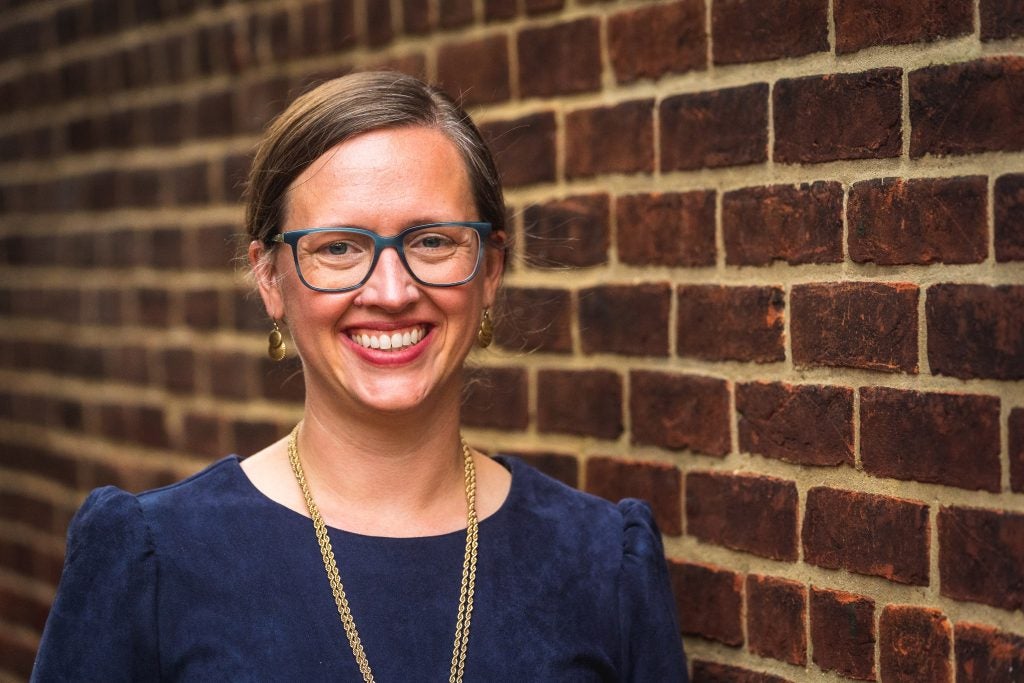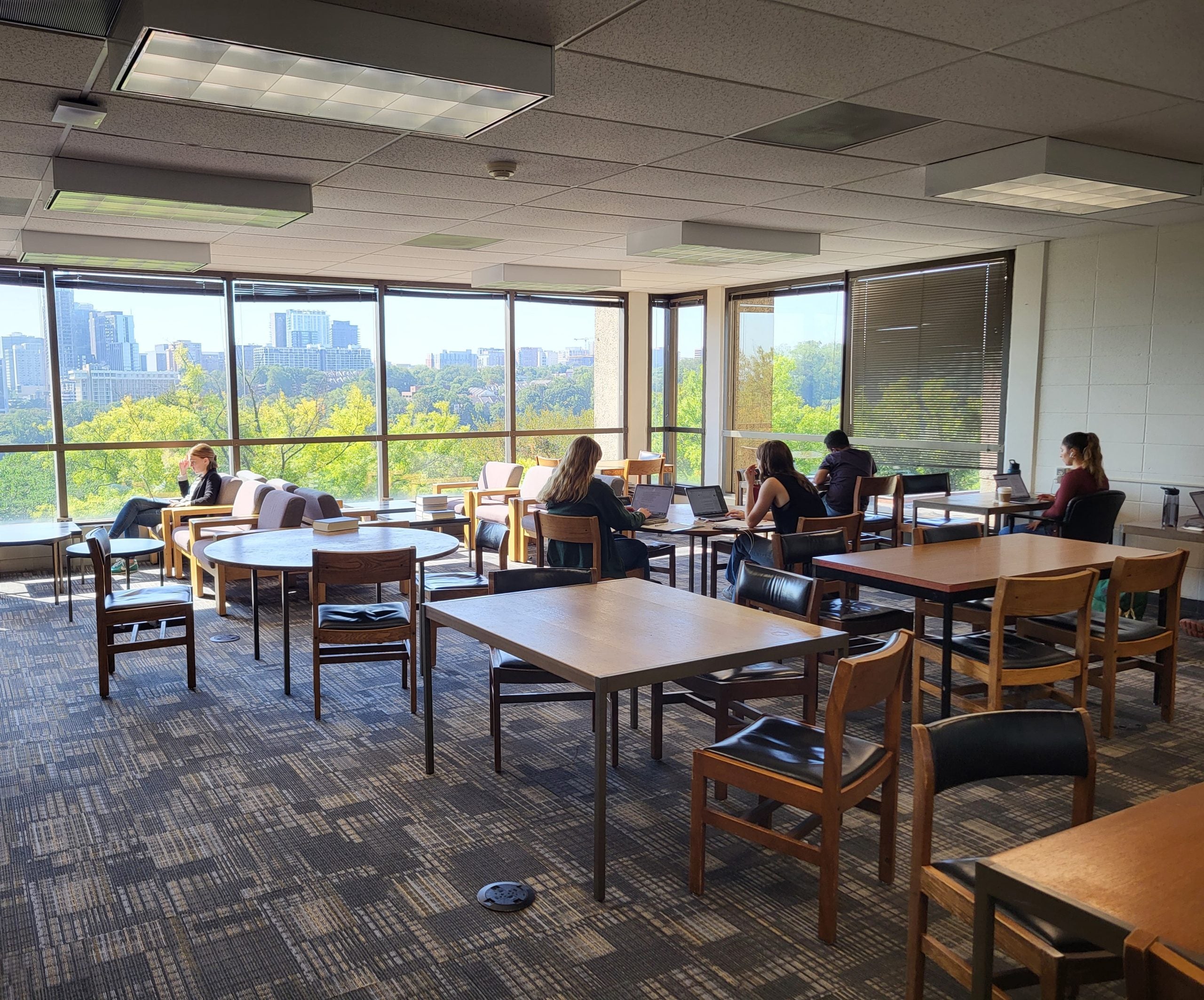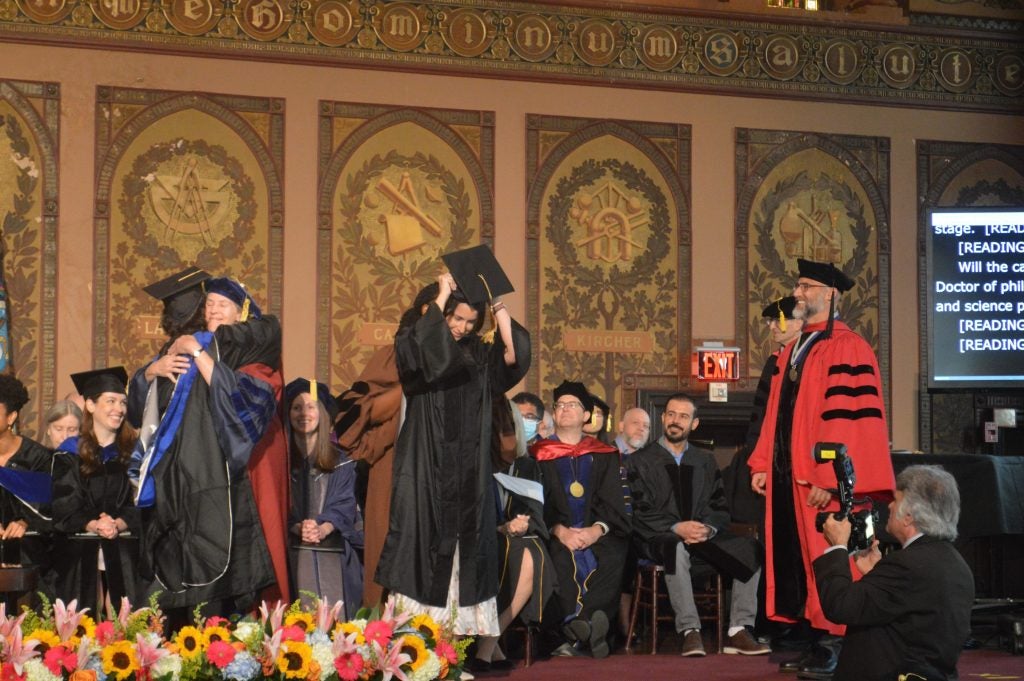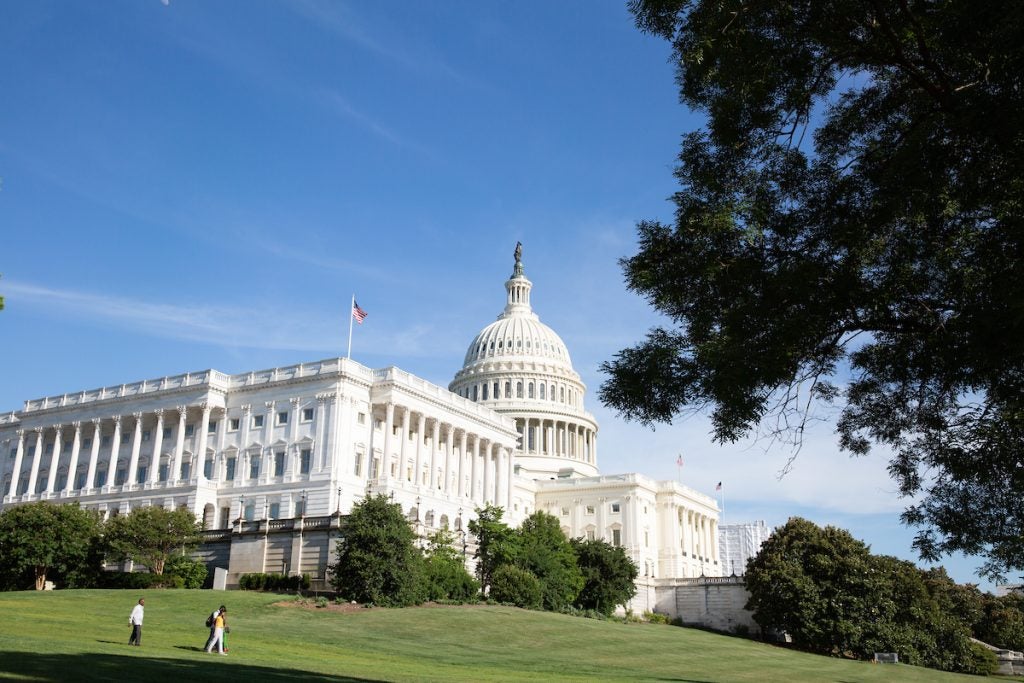Erica Lally Awarded Newcombe Fellowship for Late-Stage Dissertation Research and Writing

Erica Lally
Erica Lally is a sixth-year Ph.D. student at Georgetown. She was awarded the 2023-24 Charlotte W. Newcombe Fellowship to fund the final stages of her dissertation research and writing.
Lally’s life experience informed much of her research question. While living in Russia for nearly two years, she wondered how the legacy of Soviet surveillance continued to affect Russian society. Later, learning that 250,000 Americans had voluntarily reported on their friends and neighbors to the federal government during the First World War, she felt keenly interested in pursuing the ethical implications of this moment in history.
Lally’s dissertation, “A Grave Menace”: The American Protective League, Citizenship, and Surveillance during the First World War, explores how civilian surveillance shaped local communities and the American state.
Ethics and Accessibility
A double Hoya in the Department of History, Lally became motivated to apply for the Newcombe Fellowship because of its emphasis on ethics. “At its core,” she explained, “my research is about (often flawed) ethical decision making at the individual, community, institutional, and policy levels.”
As Lally writes through these complex ethical questions, she keeps in mind that the actors about which she’s writing were real people like herself, her classmates or her neighbors. “They were imperfect people, who made choices—good and bad—that had consequences that we continue to wrestle with today,” said Lally.
“This sense of continuity also holds me accountable to the present: I often wonder what others will write about our present moment and how future historians will judge my own actions. Through my writing and teaching, I hope to imbue others with this sense of continuity and accountability, that we all might choose to act justly and with grace in each of the many choices we make every day.”
“Because good history can help us see ourselves and our present more clearly, I want my work to be accessible,” Lally noted.
Creating that accessibility as a researcher, writer and educator meant taking the time in her dissertation project to prioritize clarity. “The goal of my work is to foster greater empathy, so that when readers face their own crises (whether personal or national), they do not fall captive to their own prejudices (as the people I’m studying often did), but instead have the courage to ask questions, evaluate evidence, and consider the broader implications their actions have for society.”
“Through my writing and teaching, I hope to imbue others with this sense of continuity and accountability, that we all might choose to act justly and with grace in each of the many choices we make every day.”
– Erica Lally
Advice to Prospective Students
Students may come across competitive external fellowships and shy away from the work of applying simply due to the time commitment and lack of guarantee in securing funding, says Lally. Although she was successful with this application, Lally says that the process of applying proved extremely valuable in and of itself.
Her advice to potential applicants is to go for it. “Read the prompt in detail,” she urges, “and remember that you’re telling a story about your project and yourself. Every component of the application is an opportunity to support that narrative and gives the committee a better way to understand you.”
Lally recommends that applicants craft proposals that can speak to multiple audiences at once. The first round of reviews for this fellowship passed through a panel of area specialists, but the second, she explained, needed to convince a general audience. This is where Lally says it became imperative to demonstrate credibility without alienating non-specialist readers. Finally, she recommends having a trusted set of eyes on any proposal before submitting it.
About the Newcombe Fellowship
The Newcombe Dissertation Fellowship is administered annually by the Institute of Citizens and Scholars and funded by The Charlotte W. Newcombe Foundation .
Newcombe Fellows are Ph.D. candidates in the humanities and social sciences whose dissertation work seeks to understand the communities, social practices and political arrangements that embody religious and ethical values. The ,000 stipend allows scholars like Lally more time to complete the writing stage of their dissertations without the need to fulfill teaching obligations or other required service.
If you’re interested in learning how to develop a fellowship application, check out the Office of Graduate Fellowships & Awards’ writing workshops, offered monthly. Subscribe to our newsletter and register for workshops on Campus Groups.


